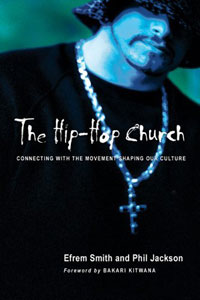As many of you know, the vast majority of my working hours these days are spent trying to grind out a dissertation that looks at the ways black artists have engaged questions of religion and spirituality in their personal lives, creative writing and critical work. Currently, my mind is occupied with the 1960s-mid-1970s, the era of the radically black pronouncements of artists such as Sonia Sanchez and Larry Neal, along with the "omni" Americanist critiques of folks like Ralph Ellison and Albert Murray. This was the period that would give birth to the formal field of Black Theology... and so much more. One of the most prominent writers of the period would be Leroi Jones/Amiri Baraka. In 1975, in his black marxist phase, Baraka offered his own critique of Christianity in the poem, "When We'll Worship Jesus," claiming -
"we'll worship Jesus when mao do, when toure does, when the cross replaces Nkrumah's star Jesus need to hurt some of our enemies, then we'll check him out, all that screaming and hollering & wallering and moaning talking about Jesus"
This was the Black Arts Movement!
Although the angle of engagement has continually shifted, the substance of religion and spirituality have remained a source of compelling critique and/or dramatic celebration for artists, black, white and other.
While I struggle right now to sort through the sixties, my next chapter will involve a close look at the shift from black power advocates to generation Hip Hop. To this end, I wanted to share with you a review I've published on line for popmatters of a book that encapsulated much of the confusion and conflicts that often surface at the intersection of religion, race and the arts. What follows is an excerpt from the article:
"While the rise of gangsta’ rap to national prominence in the late 1980s led some critics to claim that hip-hop suffered from a nihilistic crisis, those who have followed the music more closely remained unmoved in their insistence that hip-hop’s spiritual core maintained a steadfast strength. Over its history, including its public evolution from rap music to hip-hop culture—or vice versa depending upon whose telling the story—religious and spiritual themes have continued to occupy a central place in this now global phenomenon. From MC Hammer’s gospel tribute “Son of the King” on his first album, through the Afrocentric musings of X-Clan, the Nation of Islam-informed lens of Public Enemy, the five-percent philosophies of Brand Nubian, the Islamic orthodoxy of Mos Def, and the return of explicitly Christian content in the words of DMX and Kanye West, religious diversity has been the rule of rap music.
The complexities of hip-hop’s religious vision crystallized most dramatically in its two most iconic figures and most memorable martyrs, Tupac and Biggie..." For the full article, click here: popmatters.com
